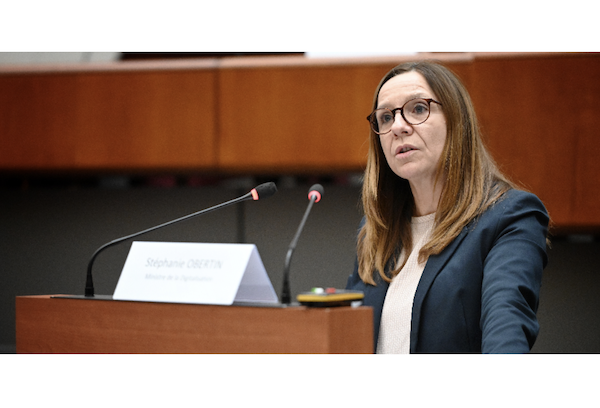 Stephanie Obertin, Luxembourg's Minister for Digitalisation;
Credit: Laurent Weber/MinDigital
Stephanie Obertin, Luxembourg's Minister for Digitalisation;
Credit: Laurent Weber/MinDigital
On Tuesday 18 November 2025, Luxembourg’s Ministry for Digitalisation organised the 7th edition of the Interdisciplinary Forum on Digital Inclusion at the Hemicycle of the European Convention Center Luxembourg, held under the auspices of the Luxembourg Presidency of the Benelux Union.
According to the Ministry, the event brought together nearly 150 representatives of associations and organisations involved in digital inclusion, as well as experts and delegates from the three Benelux Union member countries. Discussions addressed two strategic issues for the Benelux region: combating disinformation and achieving the targets of the European Union’s Digital Decade by 2030.
The Forum opened with an academic keynote by Professor Dr Gabriele Lenzini, a researcher at the Interdisciplinary Centre for Security, Reliability and Trust (SnT) at the University of Luxembourg, who delivered an in-depth analysis of the mechanisms behind the spread of false information and strategies to counter it. His presentation highlighted the growing challenges associated with disinformation in an evolving digital environment, underlining the importance of a coordinated, research-based approach.
A subsequent panel discussion brought together representatives from the three Benelux countries, Dr Debora Plein (BEE SECURE), Claire Gersen (Ministry of the Interior and Kingdom Relations, Netherlands) and Alexander Hoefmans (Federal Public Service Economy, Belgium), to exchange views on national policies aimed at curbing disinformation. The Ministry noted that the speakers shared experiences and best practices, emphasising the need for strengthened cooperation to preserve trust in information and democratic processes.
The meeting continued with presentations dedicated to the Digital Decade objectives. Representatives of the three states, Stéphanie Silvestri (Department of Media, Connectivity and Digital Policy), Wessel van Twist (Ministry of the Interior and Kingdom Relations, Netherlands) and Alexander Hoefmans, outlined their respective roadmaps for achieving the European Commission’s ambitions by 2030. They detailed the specific challenges facing their countries as well as the opportunities offered by digital transformation, particularly in infrastructure, digital skills and digital public services.
Jean-Claude Meyer, Deputy Secretary-General of the Benelux Union, highlighted the importance of cross-border cooperation in addressing digital and societal challenges, recalling that the Benelux serves as both a laboratory for regional integration and a driver of innovation.
Minister for Digitalisation Stéphanie Obertin reaffirmed Luxembourg’s commitment to building a secure, inclusive and innovative digital future. She added that the country will shortly publish its second national digital inclusion action plan, and expressed appreciation to participants and speakers for their engagement in helping integrate those furthest from digital technologies.
According to the Ministry, these contributions concluded a day of exchanges, reflecting the determination of the three Benelux countries to work together towards shared objectives and to strengthen the Benelux’s position as a key actor in cross-border cooperation.








